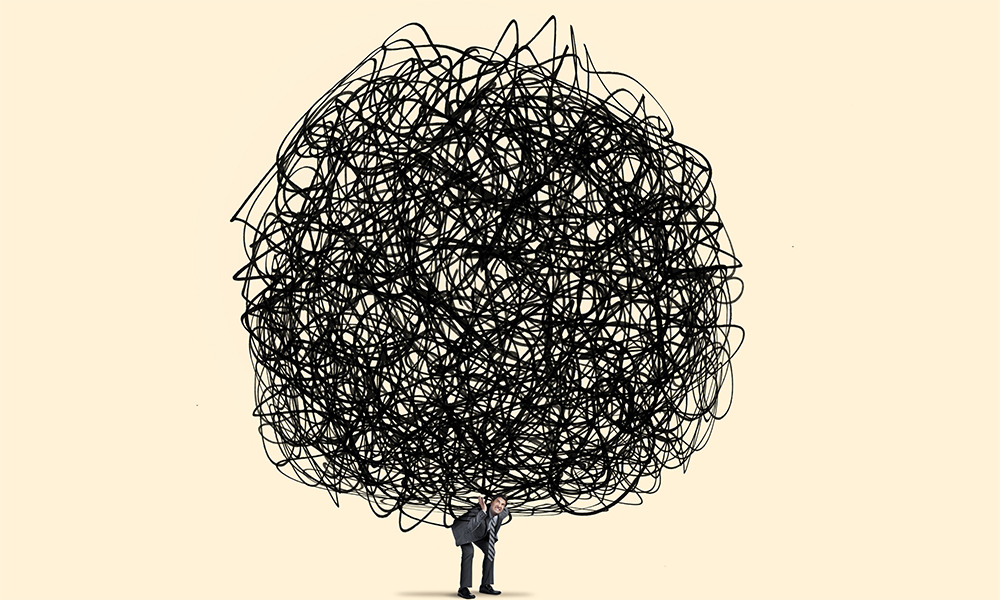What a year this is turning out to be! Against the backdrop of relentless external changes over the past seven months, your personal axis may also have shifted. Your priorities and values have likely come into sharper focus. You might be re-examining your lifestyle, your relationships or even your career in a new light.
In spite of the tumultuousness, this is an opportune time to learn new things, create new habits and transform the ways you live your life. So, this week, my message focuses on reinvention at a professional as well as personal level. How can you reboot your career? And how can you use this opportunity to transform your personal life?
In her piece for Thrive Global, Jen Fisher, Chief Wellbeing Officer at Deloitte, describes her personal journey over the course of the pandemic – which I’m sure many of us can relate to:
My goal was never to come out of quarantine a different, more improved person. It felt like everything in the world was so overwhelming, and getting by – day by day – would be more than sufficient.
As time went on, however, many of us came to realize that we can’t help but evolve and come away changed by these times. But rather than let change happen to us, we can be intentional and actively participate in our transformation. Some of us will make small but meaningful tweaks to our lives. Others will strive for a larger, sweeping “reinvention.” There’s no one right way to go about change; the important thing is to be deliberate and purposeful, and keep moving forward.
Reimagine Your Career
Here are five recommendations to consider if you want to rethink your career:
1. Imagine a multiplicity of selves.
Many people are looking for a career change, but without knowing exactly what their next act is going to look like. And that’s okay – in fact, it’s better than okay. In a world increasingly filled with uncertainty and disruption, it makes sense to consider a broad range of possibilities – rather than limiting yourself to just 1-2 options.
In her article published in the Harvard Business Review, Professor Herminia Ibarra recommends building a diverse portfolio of career options. Even in times of stability, she explains, choosing a new career isn’t a smooth, linear process – it’s a meandering, roundabout path that involves exploring multiple avenues, from the vague and fantastical to the tangible and realistic. As Ibarra says:
To cover all of the ground you’ll need to cover, it’s vital to let yourself imagine a divergent set of possible selves and futures. Embrace that process and explore as many of them as you can.
With the uncertainties created by the pandemic, there is a struggle to balance the ‘need to survive’ with the ‘desire to thrive’. There is no one-size-fits-all solution to this dilemma.
2. Self-reflect and revisit your aspirations.
Take some time to assess your life over the last several months. The disruptions created by COVID may reveal important self-truths. Did you love the flexibility of WFH and thrive while working independently? Or did you miss the physical presence of colleagues and find yourself floundering? Your goals and priorities may also have shifted. These are key considerations to keep in mind as you map the way forward.
You will also need to determine the level of risk with which you’re comfortable. With the uncertainties created by the pandemic, there is a struggle to balance the ‘need to survive’ with the ‘desire to thrive’. There is no one-size-fits-all solution to this dilemma. The right choice for you depends on your unique situation: the needs of your family, your financial circumstances, as well as your desired lifestyle. Creating clarity around these factors can help you identify your risk appetite, which will obviously play a vital role in your professional reinvention.
3. Map your skill stack.
For those who’ve been navigating the same ladder for several years, it’s important to evaluate your skills with fresh eyes. Start by listing them down – you’ll definitely be surprised by how many capabilities you’ve developed along the way. Then map your skill stack against your passions and emerging opportunities. Where are the intersections? How many sweet spots can you find? This exercise will give you a good sense of the different pathways available to you.
4. Experiment and explore.
The next step is to dive in and start testing. Feel free to explore multiple fields at the same time, so you can compare and contrast. Even with COVID constraints in place, you can still get going: take online classes, do pro-bono assignments or work on a side-project.
Now is an excellent time to educate yourself about topics that spark your interest. One benefit of the pandemic is the explosion of virtual learning opportunities – from free articles and webinars, to online courses offered by prestigious institutions. As Ibarra notes, you don’t need to restrict yourself to your domain:
Many people today are doing rewarding work and making surprising discoveries by engaging in crisis initiatives at their organizations or in community volunteer efforts. The point is to do new and different work with new and different people, because that process represents an opportunity to learn about yourself, your preferences and dislikes, and the kinds of contexts and people that bring out the best in you.
5. Get comfortable being “in between”.
Perhaps one of the most difficult parts of a major career change is being in between. You know you are done with one act, but the next act is still fuzzy and unclear. This limbo period can be quite uncomfortable, yet it is a necessary part of the career-change process. As Ibarra explains, the stage between holding on and letting go allows us to process complex emotions, prepare our minds for the future and ultimately select the best way forward.
Create Self 2.0
When it comes to reinventing yourself at a personal level, it’s important to be intentional and set a steady, sustainable pace. Consider these three steps along your journey:
1. Look at life from a different angle.
Living through this unprecedented time has given us the chance to re-examine life from an unusual vantage point. Fisher elaborates:
Are there things you’ve learned, or that you’ve been thinking about, that have troubled you? Were you bothered by the lack of human connection you felt during quarantine? Did you crave a more active lifestyle when you were spending most of your time at home? Reflecting on what didn’t work for you can be a great tool to help you decide if you want to do something differently going forward.
2. Build resilience and flexibility.
Some 2500 years ago, the philosopher Confucius said, “The green reed which bends in the wind is stronger than the mighty oak which breaks in a storm.” This past year has reminded us that adaptability is not a choice – it is a necessity. Instead of waiting around for the next wave of change, begin strengthening your personal resiliency right away.
Assess your biggest challenges during the pandemic to identify areas of improvement. If stress was a major hurdle for you, start working on your mental health. If you found it tough to adapt to virtual gatherings, classes and meetings, use this time to upgrade your comfort level with technology. If you got trapped in a victim mindset that made you feel helpless, take back control by changing your inner narrative and focusing on things you can influence. Don’t fight the changes around you – work with them.
3. Lock in key changes.
Under pandemic restrictions, many people created healthier, more fulfilling daily routines – from regular workouts and homemade meals, to spending meaningful time with loved ones. Avoid a snap back to some of our old ways.
Take stock of the changes you’ve made recently. What’s working really well for you? Does morning yoga leave you energised through the day? Has cooking a leisurely Sunday brunch with family become your favourite part of the week? Are you genuinely excited to attend your online classes? Commit to continuing new habits that have clearly had a positive impact. You can do this by making yourself accountable: schedule it into your calendar, ask family and friends to support you, or get a ‘buddy’ for workouts/classes. You could also upgrade free classes/apps to the paid version – a good incentive to stick with the routine.
Reinvention is an intentional choice, and there has never been a better moment to make it – be it starting the next chapter of your career, or creating a healthier, happier version of yourself. In her piece for the HR Daily Advisor, Kimberlee Davis sums it up well:
Ultimately, who we choose to be – in business, in wealth, in family, or just plain spiritually – will determine our paths forward out of this crisis. Amid the chaos and loss of control, our own sense of self is one of the few things we can control.








Comments